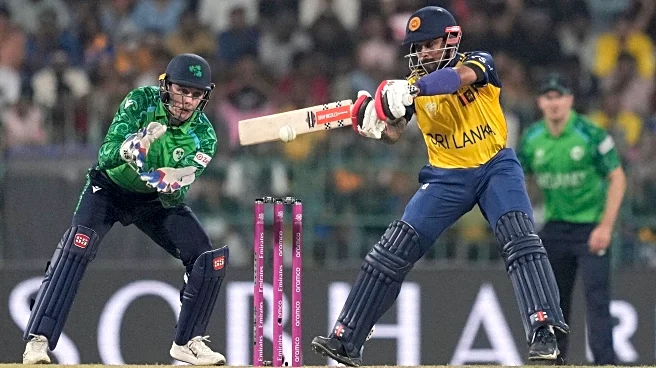Arjuna
Ranatunga, a former Sri Lankan cricketer, has stunned the internet with his remarkable weight loss, showing him as fit and leaner compared to his playing days. Ranatunga’s pictures went viral on the internet, with the World Cup-winning captain totally unrecognizable after undergoing bariatric surgery. Ranatunga led his country in ODI and Tests and played a pivotal role in guiding the team to their 1996 World Cup triumph, defeating Australia in the final at the Gaddafi Stadium in Lahore. However, his bulky and stocky build during his playing days was widely recognized and became a defining part of his on-field presence and leadership style.
Ranatunga underwent bariatric surgery
Ranatunga had undergone bariatric surgery at Colombo last year to address long‑standing weight and other health issues, including sleep apnea, high blood pressure, pre-diabetes, and Polycythemia, a condition where the body produces too many red blood cells, causing blood to thicken and flow slowly.
Following his surgery, Ranatunga has maintained a healthier and fitter lifestyle, which has significantly improved his health and maintained a leaner and more active lifestyle.
What is bariatric surgery?
Bariatric surgery, also known as weight loss surgery, is a category of surgical operations intended to help people with obesity lose weight. Doctors recommend bariatric surgery if other weight loss methods have failed and if obesity appears to pose a greater risk to your health than surgery. According to experts, bariatric surgery procedures work by modifying your digestive system - usually your stomach, and sometimes also your small intestine - to regulate how many calories you can consume and absorb. They can also reduce the hunger signals that travel from your digestive system to your brain. Bariatric surgery helps treat and prevent many metabolic diseases that are related to obesity, which include diabetes and fatty liver disease. However, weight loss surgery is not an easy “quick fix” and requires preparation beforehand and long-term lifestyle changes afterward to be successful.
What health conditions does bariatric surgery treat?
Doctors say that since obesity leads to many deadly chronic diseases, many can be life-threatening. However, most of these conditions and risk factors significantly improve after you have undergone weight loss. So, if you are a candidate for bariatric surgery, you may already have or be at risk of developing any of these diseases, including:
High cholesterol
High cholesterol leads to blockages in your blood vessels and puts you at risk of a stroke or heart attack.
High blood pressure
High blood pressure, or hypertension, forces the blood flowing through your blood vessels at a high speed, wearing down the walls of your blood vessels and putting you at greater risk of heart attack and stroke.
Diabetes
High blood sugar is linked to insulin resistance and is considered a precursor to diabetes.
Kidney disease
Metabolic syndromes are associated with obesity, which includes high blood pressure, insulin resistance, and congestive heart failure – all of which are major contributors to chronic kidney disease and kidney failure.
Obstructive sleep apnea
Those who have untreated sleep apnea stop breathing repeatedly during their sleep when their upper respiratory tract becomes blocked.
What are the common myths about bariatric surgery?
A few common myths regarding bariatric surgery, which is the most effective long-term treatment for class III obesity, are that you do not need to take care of your diet or workout after that. In reality, experts say the surgery, along with a combination of medications and lifestyle changes, is more effective in the long run. Bariatric surgery can also be thought of as an easy way to lose weight. However, doctors say they opt for this surgery only when there is no other way for the patient to lose weight and lead a healthy lifestyle.

/images/ppid_a911dc6a-image-176260562788990724.webp)











/images/ppid_a911dc6a-image-177056958923976334.webp)
/images/ppid_a911dc6a-image-177056954333251786.webp)
/images/ppid_59c68470-image-177056752718269137.webp)


